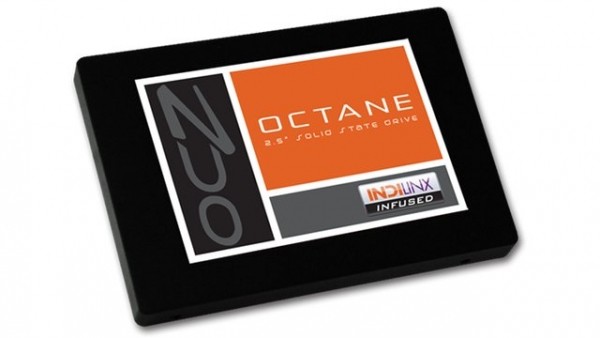OCZ's first solid-state drives based on the Indilinx Everest platform have been officially revealed. The new Octane series includes two models: one with a SATA 3.0 (6Gbps) interface and synchronous NAND flash delivering read speeds up to 570 MB/s and writes of 400 MB/s with up to 45,000 read IOPS using 4K blocks, while a SATA 2.0 (3Gbps) variant with asynchronous NAND can reach 275MB/s and 265MB/s read and write speeds with up to 30,000 4K random read IOPS.
But performance is just a small part of the overall Octane picture. The drives feature Indilinx's NDurance technology, which OCZ says increases the life span of NAND flash memory by as much as 2 times, from the 3,000-5,000 PE write cycles currently seen on 20nm-class NAND drives back to the 6,000-10,000 range we saw with 30nm-class NAND.

Moreover OCZ is touting access times as low as 0.06ms, a ‘Fast Boot’ technology that will supposedly deliver 50% speedier boot times compared to existing SSDs, and no data compression limitations as in SandForce-equipped models, so users can expect better performance with certain operations with media files and the like.
They'll also feature up to 512MB of DRAM cache, AES encryption, TRIM and NCQ support. In terms of storage capacity, the Octane line will include 128GB, 256GB, 512GB, and 1TB drives. Exact prices haven’t been announced just yet but we do know OCZ is aiming for a $1.10 to 1.30/GB price point, which means a 128GB model would sell for around $166.
OCZ agreed to purchase South Korea-based NAND flash controller maker Indilinx for $32 million back in March. The Octane series is their first SSD line to use the newly acquired company's controller technology since then, but OCZ has previously said they will continue to rely on third-party partners for some of their products.
https://www.techspot.com/news/45934-ocz-octane-ssd-packs-new-indilinx-controller-1tb-capacity.html